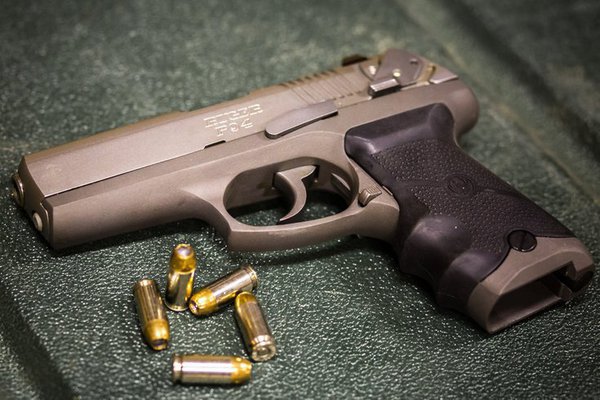Gun owners looking to get concealed-carry permits in New Jersey now must to purchase liability insurance and take a gun-safety training course, as a result of the state's new law.
These requirements take effect in July, and New Jersey is the first state in the U.S. to enact the strict rules. San Jose, California, started requiring gun owners to purchase liability insurance earlier this year and was the first to have such a requirement on the municipal level.
- MORE NEWS
- Four former union employees tied to John Dougherty embezzlement case plead guilty to illegal use of assets
- Stratford man allegedly spiked the drink of a woman he met online and sexually assaulted her, police say
- Five-story apartment building planned for Broad Street Diner lot in South Philly
The legislation is a response to the U.S. Supreme Court's 6-3 ruling in New York State Rifle & Pistol Association v. Bruen in June, which overturned a New York law that had required residents to show "proper cause" to get concealed-carry permits, and at the same time invalidated similar gun laws in New Jersey, California, Maryland, Massachusetts and Hawaii.
There logic is that insurance companies would incentivize safety measure among gun owners: Those who followed safer practices would pay the lowest premiums. When San Jose was considering its insurance requirement legislation in October, that city's mayor, Sam Liccardo, said he believes insurance companies can mandate that gun owners use trigger locks and store weapons in gun safes in the terms of their policies.
Gov. Phil Murphy signed the concealed-carry measure into law on Thursday morning after it narrowly passed in the legislature earlier this week. The new legislation does not make residents show proper cause to obtain a permit.
The new law raises the fee for the permit application from $2 to $25; it's the first increase in the fee since 1966.
Residents prohibited from getting conceal-carry permits include people with felony convictions and anyone with a domestic violence restraining orders. Also barred are those who have been committed for mental health issues, people wanted in other states for crimes and residents who have threatened violence or harm.
"While I strongly disagree with that (Supreme Court) decision, we must abide by it, and today's law fully respects the Second Amendment while keeping guns out of the wrong hands and preventing them from proliferating in our communities," Murphy said. "I am proud to sign this commonsense legislation which prohibits carrying guns in sensitive places, including our daycares, hospitals, libraries, and stadiums."
The law also bans concealed handguns in a schools, entertainment venues, election polling places, bars, and movie theaters, and it is intended to stop a person with a concealed firearm from bringing it onto private property – like homes, grocery stores, and shopping malls – without the property owner's consent.
Violators of the law could face three to five years in prison and fines of up to $15,000.
"Think about what this bill does for a minute," Attorney General Matthew Platkin said. "We all gathered after the Bruen decision and we have our views on that — we're obligated to follow it. But nothing in that decision, and nothing under the Second Amendment, prevents us from doing what the legislature and the governor are doing today. These steps are common sense, and they are entirely consistent with the Second Amendment."
Not long after Murphy signed the bill into law, the Association of New Jersey Rifle and Pistol Clubs sued the state, calling the law "unconstitutional." The ANJRPC want to halt the implementation of the law while the gun-rights activists pursue legal action.
"By signing this legislation, Gov. Murphy has effectively ended any chance of ever being elected to higher office outside of New Jersey, and has confirmed that the Constitution is indeed 'above his pay grade,'" said Scott Bach, executive director of ANJRPC. "Not only will this legislation go down in flames, but the Murphy administration will end up paying the very substantive legal costs of gun owners to bring it down."
Following the U.S. Supreme Court's decision in June, New York officials attempted to enact restrictions on carrying concealed firearms on private property, but the legality of that legislation is still being fought out in courts.
Murphy also signed a seven-bill gun safety package into law in New Jersey during the summer, in the wake of mass shootings in Illinois, New York, and Texas. Each measure aims to regulate gun sales and enhance safety while allowing law-abiding gun owners to keep their firearms.
In July, New Jersey established the Statewide Affirmative Firearms Enforcement Office, an office dedicated to pursuing civil lawsuits against gun companies for unlawful conduct.

